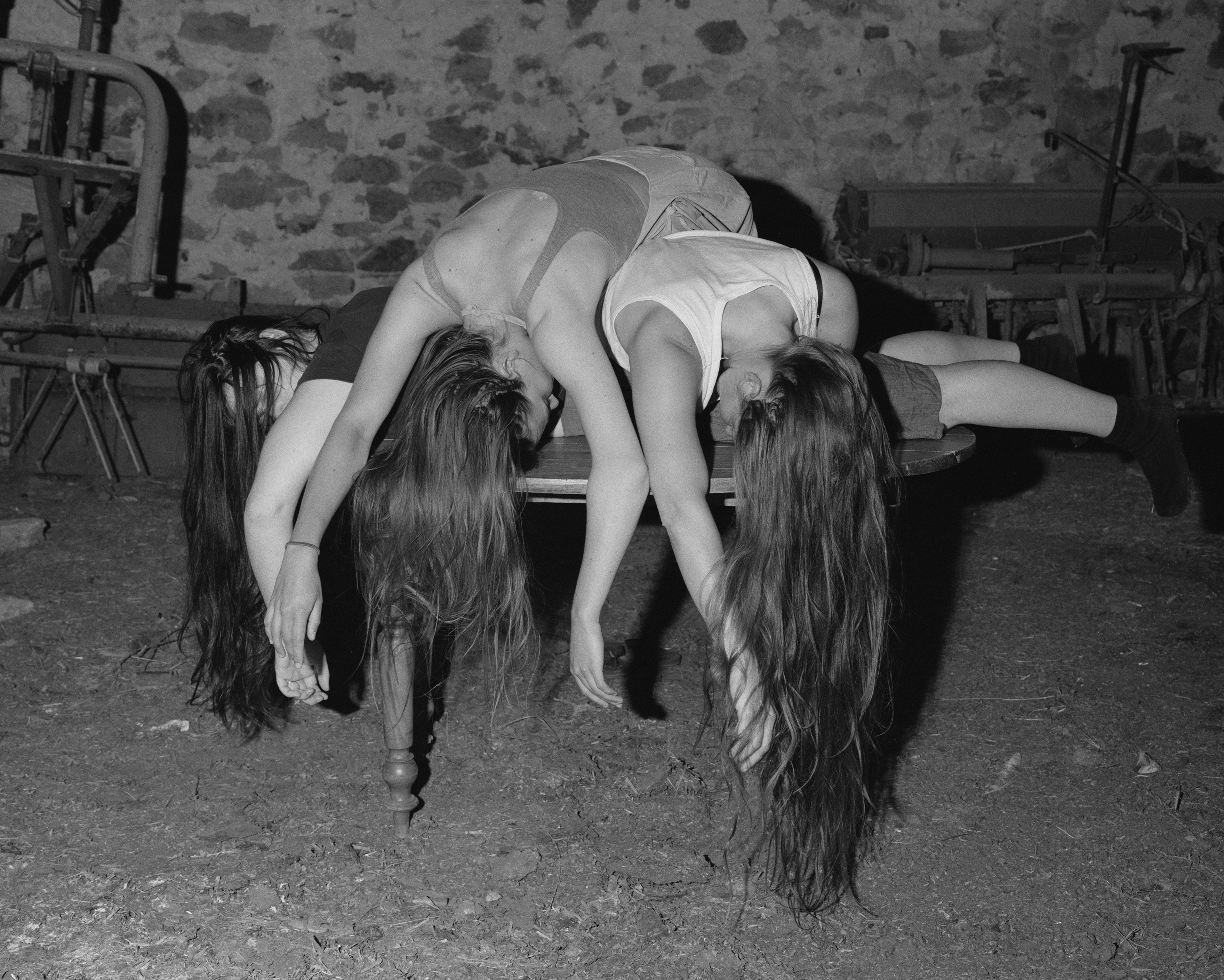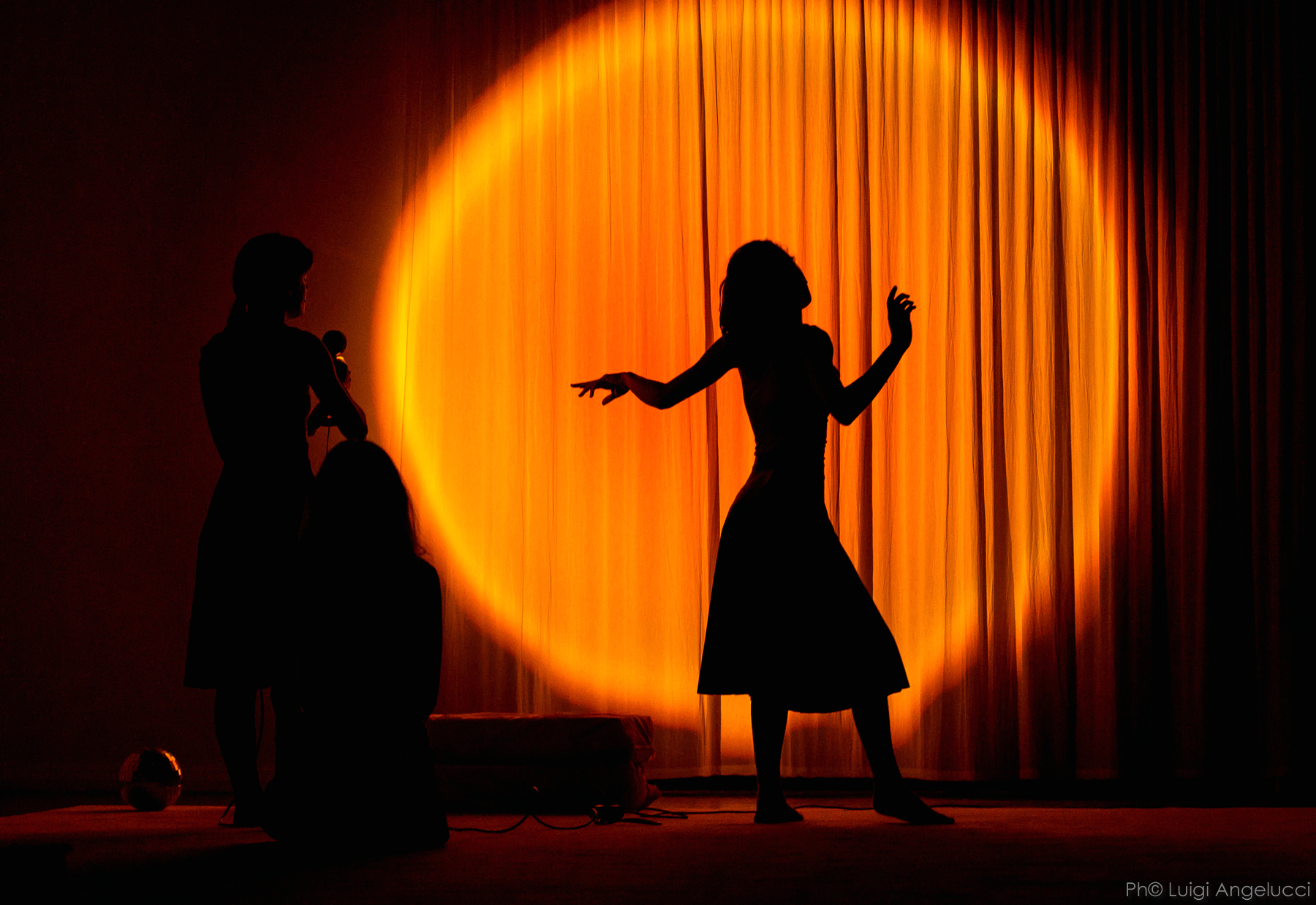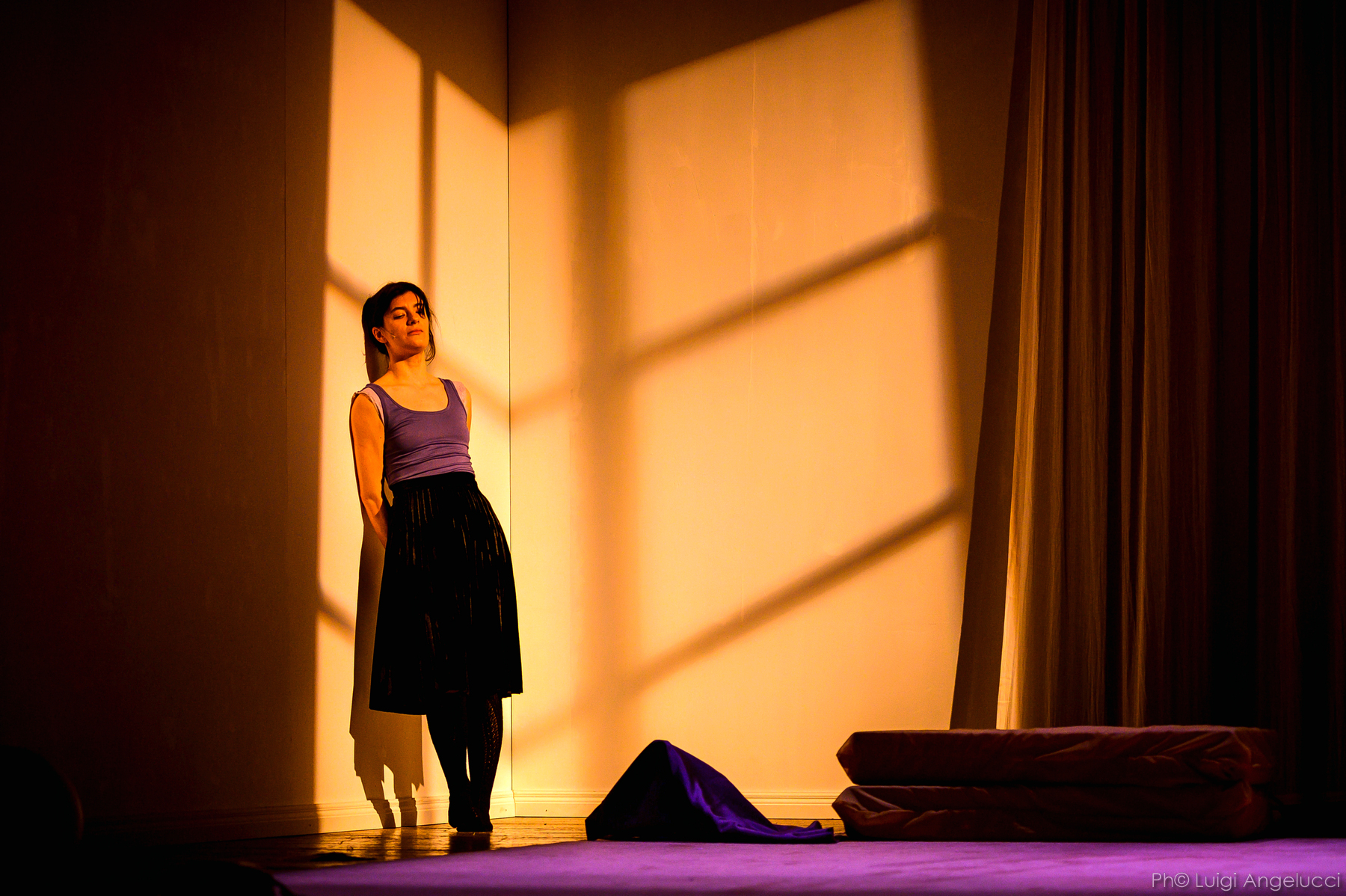
Tre Sorelle
by Anton Cechov
direction Claudia SoraceRiccardo Fazi
with Federica Dordei, Monica Piseddu, Arianna Pozzoli
original music Lorenzo Tomio
stage design Paola Villani
lights and technical direction Maria Elena Fusacchia
costumes Fiamma Benvignati
administration, organization and production
Grazia Sgueglia, Silvia Parlani, Valentina Bertolino
coproduction Index Muta Imago, Teatro di Roma – Teatro Nazionale, TPE/Teatro Piemonte Europa
in collaboration with Amat & Teatri di Pesaro per Pesaro 2024 – Capitale Italiana della Cultura
stage pictures Luigi Angelucci, Gaia Adducchio
video Circa promo image Table Rappers (2013) Tereza Zelenkova
[Karl Schwarzschild, theoretical physicist, 1914]
If Olga, Maša and Irina were real people, not just theatrical characters, they would be contemporaries of Virginia Woolf and her sister Vanessa. Perhaps one of them, perhaps Maša, would write words in her diary at night similar to these, which Virginia writes in her 1938 attempt at autobiography:
«So it was that Vanessa and I found ourselves united by a kind of secret complicity. In that world full of men coming and going, in that big house full of rooms, she and I formed a small private core. I see it as a small focal point, where sensitivity, intensity and immediate mutual understanding are concentrated, within that big, echoing, shell-like shell that was the house…. Every day we had to struggle to hold on to things that, again and again, were being taken away from us or changed.»
We looked in every word of theThree Sisters where this struggle resonated, this ongoing effort to build an inviolable place against the inevitable flow of events. We started with the three of them, as indicated in the title, which not surprisingly puts them at the center of it all: three women left alone in the echo-filled emptiness of a home left behind by all.
Everything has already happened, or perhaps has yet to happen, within the walls of a building suspended in space-time, the last refuge in the heart of a black hole, suspended in an eternal present, stuck between a past to be remembered with nostalgia and a future that is hard to imagine. From there, from the main room of the house, from this “small focal point,” begins the revolution of three women struggling desperately to find meaning, to step over the horizon of events and re-enter the world, to answer a simple question, which not surprisingly opens Cekhov’s drama, “Why remember?” Like sorceresses or mediums, the sisters deploy survival strategies; they are traversed by the voices and bodies of the male protagonists; they revisit moments, places and situations in the story. They use the raw material of repetition, metamorphosis, ambiguity and fragmentation, to return endlessly to give life to figures that now belong to their lives, their past as well as their future, in a continuous exercise of possession and exorcism at the same time.
The death of their father, the arrival of the soldiers, the falling in love, the violence, the talks about time and the future, the night carnival, the fire: scenes and moments resurface, return and return, within a dramaturgical mechanism that represents the latest outcome of the continuous reflection on the relationship between Time and identity that has been the object of Muta Imago’s research for years; a research that in recent years has taken different forms depending on the projects it has gone through (the installation with Sonora Desert in 2021, the performance with Ashes winner of the 2022 Ubu Awards for Best Actor and Best Sound Project) and that today seeks inlets of meaning and different looks into the questions that Cekhov continues to ask us from more than a hundred years away: “But what sense does it all make? “.
Maša, Irina, and Olga are different from the rest of the world because they cling to their questions; they are like three voices of the same woman who, endlessly, goes through everything she has seen happen and all the thoughts she has found herself thinking. Everything moves from their gaze, and that of the three lead actresses, belonging to three different generations: Monica Piseddu, Arianna Pozzoli and Federica Dordei. It is they who give life and voice to this tale of ghosts, it is their thoughts that have slowly changed ours: of the vast mass of characters who crowd the drama, in flesh and blood, no one else is left. The three sisters, as three voices of the same woman, endlessly traverse all that she has seen happen and all the thoughts she has found herself thinking from a study of the specific trait of theater: immanence, the starting from the absolute present in order to traverse different temporal universes.
In our rewriting, the words spoken on stage will be only Chekhov’s: it was amazing to discover how everything was already contained in the original text. It was rather a matter of removing, of subjecting the material to a slow alchemical process of condensation and casting, which in the end made the essentials remain. What remains, and will continue to echo through time, is the voices of three women, seen as the future founders of future worlds.
Chekhov, in our view, also looked at the three of them in this way.







